Manga: Nichijou 日常 (Chapter 44)
- Betsuni ...nai (Adverb + Negative)
- Betsuni (exclamation)
- Betsu ni (Noun-Adverb)
- Betsuni... nai without nai
- Betsuni ii 別にいい
- Kanji of Betsuni
- Betsubetsuni 別々に
- Betsu no 別の
- ...betsu desu ~別です
- ...wa betsu toshite ~は別として
Betsuni ...nai (Adverb + Negative)
The most common use of betsuni is in negative phrases, with the nai ない auxiliary, so we'll start with them. Note that betsuni means something else in affirmative phrases (because Japanese hates you), but that usage is a little rarer so I'll explain that one further below.Anyway, in a negative phrase, betsuni means "it doesn't make a difference," "it doesn't matter," "not particularly," "not really." Examples:
- betsuni suki janai!
別に好きじゃない!
[I do] not particularly like [you]!
It's not like I like you or anything! - betsuni kirai janai
別に嫌いじゃない!
[I do] not particularly hate [it]!
I don't really hate it or anything! - betsuni kamawanai
別に構わない
[I do] not particularly care.
Fine. - betsuni hoshikunai
別に欲しくない
[I do] not particularly want [it].
It's not like I want it or anything!
You can have. Take it. Keep it. I don't care.
Sometimes it can get more complicated. For example:
- betsuni nanimo nai
別に何もない
[It's nothing.]
[There's no issue.]
[I'm not doing anything.]
Above, we have nanimo 何も, which means "whatever," together with nai ない, which translates to "there's no whatever," that is, "no thing whatsoever," essentially "nothing." Depending on context, this "nothing" can refer to a number of different things.
Manga: Karakai Jouzu no Takagi-san からかい上手の高木さん (Chapter 1, 消しゴム)
- Context: Takagi 高木 catches Nishikata 西片 acting suspiciously.
- nee, Nishikata.
ねえ、西方。
Hey, Nishikata. - na, nani!? Takagi-san!?
な、何!?高木さん!?
W-what [is it]!? Takagi!? - nani shite-n-no?
何してんの?
What are [you] doing? - betsuni...
nanimo...
別に・・・何も・・・
Nothing...
In particular... - fuun.
ふーん。
*suspicious humming of doubt.*
In the example above, Nishikata responds with just "nanimo" instead of "nanimo nai." This is a common way to abbreviate it in this sort of answer. And nanimo is referring to what he is "doing" suspiciously: nothing at all, of course!
Note that nai ない can be replaced by its relaxed pronunciation nee ねぇ. So you can have janee じゃねー instead of janai じゃない for example.
Manga: Karakai Jouzu no Takagi-san からかい上手の高木さん (Chapter 1, 消しゴム)
- Context: Nishikata 西片 lies to himself in a thought bubble.
- iya...
いや・・・
[That's not it.] - betsuni zenzen
shokku toka
janee yo.
別に全然ショックとかじゃねーよ。
It's not like I'm shocked or something like that at all. (totally not, folks.)
Betsuni... nakutemo 別に~なくても
When you have the structure betsuni... nakutemo, the whole things means "even if [you do] not particularly [do X, Y will happen.]" That is, someone's actions are inconsequential, meaningless, a waste of time. "You don't need to do this."- betsuni okoranakutemo
別に怒らなくても
Even if [you do] not particularly get angry [about it.] (you can solve the problem)
You don't need to get mad because of it.
It's nothing to fuss about. - betsuni korosanakutemo
別に殺さなくても
Even if [you do] not particularly kill [him.] (you can solve the problem)
You don't need to kill him, though I don't really care if you do. - betsuni ayamaranakutemo
別に謝らなくても
Even if [you do] not particularly apologize. (the problem will be solved)
There's no need for apologies, it's alright, I forgive you. Actually, it wasn't even something to apologize about. Actually, I've already forgotten about it long ago, don't worry about it. No need to bring up the past. - betsuni shiranakutemo
別に知らなくても
You don't need to know about it. - betsuni wakaranakutemo
別に分からなくても
You don't need to understand it.
Tokuni... 特に
The word tokuni 特に means "importantly," and "importantly" and "particularly" are sort alike, likewise, betsuni is like tokuni when the phrase is negative. See:- tokuni nanimo nai
特に何もない
Nothing of importance [happened]. - betsuni nanimo nai
別に何もない
Nothing in particular [happened].
Betsu ni anata no tame ni... 別にあなたのために~
And, of course, the trademark phrase of every staple tsundere:
Manga: Nichijou 日常 (Chapter 44)
- kanchigai shinaide yo ne!!
勘違いしないでよね!!
Don't get the wrong idea! - betsu ni anta no tame ja nai-n-dakara ne!!!
別にあんたのためじゃにんだからね!!!
It's not like I did it for you or anything!!!
Betsuni... masen 別に~ません
The examples above are using the nai negative, but this kind of betsuni also works with the polite masen. For example:- betsu ni kamaimasen
別に構いません
I don't (particularly) mind. - betsu ni kiken dewa arimasen
別に危険じゃありません
It's not (particularly) dangerous.
Betsuni (exclamation)
Next we have betsuni as an exclamation. This is also a very common use. Most of the time betsuni appears alone in a phrase, as a short answer, it's the exclamation, and this betsuni means: "I have no strong feelings one way or the other." Literally.Note that, however, betsuni is often translated as just "not really," because people normally ask one-sided questions, not two-sided questions (I'm making these names up). To elaborate:
- Do you like X? (one-sided)
Not really. (betsuni) - Do you hate X? (one-sided)
Not really. (betsuni) - What do you think about X? (two-sided)
I neither like it nor hate it. (betsuni)
Some more examples:
- kaizoku ni naritai no ka?!
海賊になりたいのか?!
Arr, do ye wanna be a pirate!? - betsuni
別に
Not really. - robotto ni noritai no ka?
ロボットに乗りたいのか?
Do you want to get on the robot? - betsuni
別に
Not really. - chikushou! kuyashikunee no ka yo?!
畜生!悔しくねぇのかよ?!
Damnit! Aren't you mad?! - betsuni
別に
Not really.
As you can clearly see above, this word is annoying as hell. Just talk! Use words, damnit! Is betsuni all you can say?!
- betsuni
別に
Not really.
Betsu ni (Noun-Adverb)
Now we got to betsuni with an affirmative. The least used betsuni. What's happening is that, in this case, it's more like betsu ni than betsuni. That is, it's not really an adverb, it's a noun turned into an adverb.The noun betsu means "separate," "different than this one" or "other than this one." Let's start with an example of it being used alone:
- neru you no beddo wa betsu ni aru
寝る用のベッドは別にある
A bed for sleeping other than this one exists.
There is another bed for sleeping. - betsu ni iken ga aru
別に意見がある
There is an opinion for something else.
I have a different opinion about this.
Above we have betsu by itself, without an adjective. Another case is when betsu has an adjective behind of it. So a phrase like X betsu becomes "each of X" or "X separately." Example:
- iro betsu ni seiri suru
色別に整理する
To organize by the separation of colors.
To organize by separated colors.
To organize by each color.
To organize by colors separately. - gakunen betsu kanji haitouhyou
学年別漢字配当表
List of kanji distributed by each school year.
List of kanji separated by school year.
(this is a list of which kanji students learn at which year in school)
Betsuni... nai without nai
So now we have seen the betsuni...nai which means "not particularly" and that weird noun-adverb hybrid that was betsu ni. Next we're going to see the first betsuni, again, but this time without the nai.- betsu ni daijoubu desu
別に大丈夫です
It's nothing in particular, I'm alright.
Now, you may notice the phrase above makes no sense. I'll be honest. It doesn't. Don't even try to understand how it makes sense: it does not make sense. It'll never make sense. You can twist your brains for hours and you'll never be able to figure out how and why it means what it means, because, it's not supposed to mean that.
That's right. That, above, is a native Japanese speaker exercising their right to screw up their own language by using words in ways they aren't supposed to according to the dictionary.
Basically, because the negative betsuni is far more common than the positive betsuni, people end up using the negative meaning without a negative phrase. (oh the humanity!).
It could be that they didn't notice, haven't realized, that they always use a negative phrase with the negative betsuni. Because you don't really pay attention to these things, you just use words naturally. Since they haven't realize they have been using it with a negative phrase, surely they wouldn't think it's a requirement. And so, sometimes, the negative meaning of betsuni shows up in affirmative phrases instead. Not because it should, but because it kinda feels right.
Manga: Karakai Jouzu no Takagi-san からかい上手の高木さん (Chapter 4, 筋トレ)
- Context: Takagi 高木 takes a look at Nishikata 西片, and notices his arm is trembling.
- ude douka shita no?
腕 どうかしたの?
[Your] arm, [did you do something with it]?- Did something happen to it?
- kega?
ケガ?
Injury?- Did you hurt it?
- e,
え、
Eh, - aa, iya
ああ、いや
Aah, no - betsu ni tada no
kin'niku-tsuu da yo
別にただの筋肉痛だよ
It's nothing, just muscular pain.- Nishikata's arm is sore from physical exercise.
- The betsu ni here means it's no big deal like an injury, nothing serious, just sore from exercise.
...betsuni ~別に
Sometimes this kind of adverbial betsuni will end up at the end of a phrase. For example:- sore wa betsuni
それは別に
That [is not] particularly... (what?)
This can happen for a few reasons.
First, whatever comes after betsuni is implicit. That is, someone might have said "it's going to cost a lot," and you say betsuni, it means that costing a lot isn't something you care about. It doesn't matter.
Second, it could be that what comes after betsuni is actually behind betsuni, at the start of the phrase.. So you're betsuni'ng yourself: "it's going to cost a lot, but betsuni (I don't care)."
Another situation is when you have a dislocation, where betsuni is dislocated to the end of the phrase. For example:
- suki janai, betsu ni
好きじゃない、別に
(same as.)- betsu ni suki janai
別に好きじゃない
It's not like I like it.
- betsu ni suki janai
Betsuni ii 別にいい
Alright, now we've reached the worst monster of the article: betsuni ii 別にいい. At first glance it doesn't look so bad, after all, come on, it's just two words, right? How bad can it be?It makes natives ask questions about its usage levels of bad.
There are, like, a dozen problems with this phrase. Let's start with the biggest problem: ii いい.
- ii-n-desu
いいんです
It's good. (I'll take it.)
I'm fine. (I don't need it.)
Okay. Who makes these words? Who decides these meanings? What kind of moron thought it was a good idea, to have one phrase, mean opposite things? What kind of nonsense is this? We haven't even reached the betsuni part yet and it already doesn't make any sense!
- betsuni ii-n-desu-kedo
別にいいんですでこ
It's alright. Who cares. - betsuni ii-n-desu
別にいいんです
(same meaning.) - betsuni ii
別にいい
(same meaning.)
Manga: Watashi ga Motenai no wa Dou Kangaetemo Omaera ga Warui! 私がモテないのはどう考えてもお前らが悪い! (Chapter 2)
- Context: girl goes inside her brother's bedroom, but he doesn't want her there.
- ii daro betsu ni
ane nan-dakara
いいだろ別に
姉なんだから
[It's alright, isn't it? Something like this doesn't matter.]
Because I'm your older sister.- This sentence is dislocated.
- betsu ni ii daro
別にいいだろ
It's fine, isn't it? Who cares.
- yokunee yo
よくねーよ
It isn't alright!
[No, it isn't!] - kaere yo
帰れよ
Return!
[Go away!]
Okay, so, above, we have betsuni ii. The problem: this is the negative meaning of betsuni, used in an affirmative phrase. It's saying you don't particularly care if it's good or not. Whatever. However, as we can see, there is no nai up there. The phrase is affirmative.
If it were to work the right way, as if we can call that, it would have been: betsuni yokunai? 別によくない? But that's not the same thing at all!!! That's just how exceptionally weird the phrase betsuni ii is. It combines a number of things that are difficult to understand in Japanese.
And there's more. See:
- betsuni ii-n-janai desu ka?
別にいいんじゃないですか?
Isn't it alright? Who cares, - betsuni ii-n-janai ka?
別にいいんじゃないか?
(same meaning.) - betsuni ii-n-janai?
別にいいんじゃない?
(same meaning.) - betsuni ii-n-jan?
別にいいんじゃん?
(same meaning.)
The above is not the negative betsuni either! It's the pseudo-negative betsuni plus a negative question. That is, you're not going to put the nai where you ought to put it (yokunai), but somewhere else it's alright (janai)?! What?!
BUT IT DOESN'T STOP THERE.
Finally, justice shall be served! Despite all the pain the gaijins suffer from the language liberties taken by natives as shown above, the natives themselves are unfazed by it. Except when it comes to what's next. Then they suffer the same pain as the gaijins! And it's their fault, too! If they hadn't used made negative betsuni affirmative, this wouldn't have happened:
- betsuni ii
別にいい
What you say sounds good. Whatever. - betsu ni ii
別にいい
I don't really like what you said. Something else sounds good to me.
Dear kamisama, what the actual hell is going on here.
So, basically, you may need to scroll up. Remember the example: betsu ni iken ga aru 別に意見がある, which means "to have an opinion for something else?" It's what we see here.
The first betsuni ii is saying: pfft, I do not particularly care (betsuni) for one way or another. What you just said sounds good (ii) enough.
The second betsu ni ii is saying: I think your idea is bad. Meanwhile, I think a different, other (betsu) idea I'm aware of is good (ii).
So say you're in a business meeting and after giving a business proposal you get this business answer: betsuni ii. What does that mean? What does this guy mean? Does he mean he likes my idea? He's fine with my idea? My proposal? Can I do this? Or is he talking about the other idea? Which the other guy proposed? Literally what??? What do I do now?
Manga: Karakai Jouzu no Takagi-san からかい上手の高木さん (Chapter 2, プール)
- Context: regarding whether Nishikata 西片 wants to know the answer of something.
- iya...
いや・・・
[No... I mean...] - betsu ni ii yo
別にいいよ
[It's fine.] - shiritakunai shi...
知りたくないし・・・
[I] don't want to know...
Kanji of Betsuni
The word betsuni 別に is written with kanji and hiragana, betsu 別 plus the ni に suffix that makes it an adverb (this is explained in Na-Adjectives.) This kanji (別) means "separate" and can be found in the following common words:- sabetsu
差別
Discrimination. Differentiation.
"Difference" (sa 差) of "separate" (attributes) - tokubetsu
特別
Special. - betsu koudou
別行動
Separate actions. Different actions.
(let's split, team! Me, Velma and Daphne will check this room, while you and the dog go elsewhere) - betsujin
別人
Separate person. Different person.
(when he came back, he was "like someone else!" betsujin mitai! 別人みたい) - betsumei
別名
Separate name. Alias. A.K.A.
And in this verb, although the reading is kun'yomi:
- wakareru
別れる
To separate. To part. - wakararu toki ga kita
別れる時が来た
The time to part has come.
Betsubetsuni 別々に
The word betsubetsuni 別別に (or 別々に) is, obviously, betsuni with an extra layer of that delicious betsu. It has nothing to do with betsuni, it comes from the noun betsubetsu which means many things becoming "separated" one from the other.- betsubetsu ni naru
別々になる
To become separated (one from the other). - betsubetsu ni aruku
別々に歩く
To walk separately (through separate paths).
Betsu no 別の
The phrase betsu no is a no-adjective, unlike betsuni, which's an adverb. As the adjective it is, betsu no means something is "separate" or "different (from the one we're talking about)," that is, "another." Examples:- sore wa betsu no hanashi da
それは別の話だ
That's a different story. (it's not the one we're talking about now)
That's another story. - betsu no hi demo ii desuka?
別の日でもいいですか?
Is it alright if it's a different day?
Is it alright if it's another day? - betsu no hito ni naritai
別の人になりたい
I want to become a different person.
I want to become another person. - purosesu wa fairu ni akusesu dekimasen. betsu no purosesu ga shiyouchuu desu.
プロセスはファイルにアクセスできません。別のプロセスが使用中です
The process can't access the file. Another process is currently using it.
...betsu desu ~別です
The phrase betsu desu, and very much any other way that says something is betsu, that is, it's not the same, not what it was thought to be, it's something else.- sore nara hanashi wa betsu desu
それなら話は別です
If that's the case the story is different (from something I don't care about. I'm listening now!)
...wa betsu toshite ~は別として
The phrase betsu toshite means literately "to treat separately," and is used to exclude something from consideration.Another way to think of it: betsu to shite, betsu ni shite, betsu ni suru, "to make [something] into something else." If it's something else (it's betsu), it's apart from what I'm talking about right now.
- sutoori wa betsu toshite, suki desu
ストーリは別として、好きです
Except for the story, I like it.
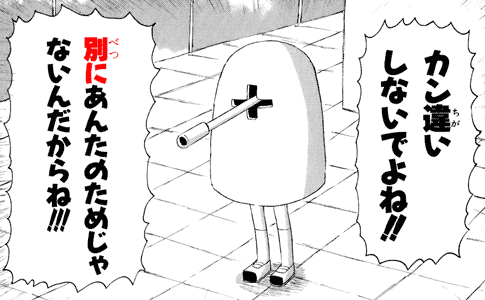
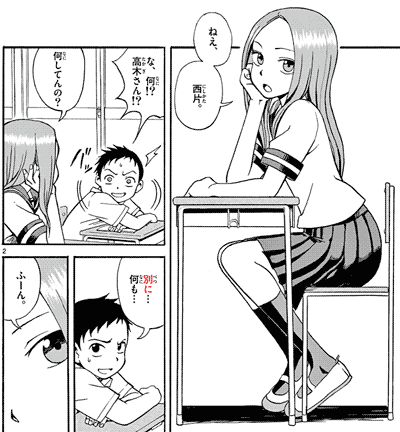
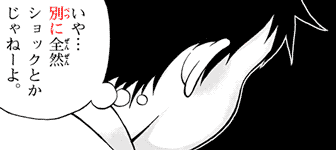
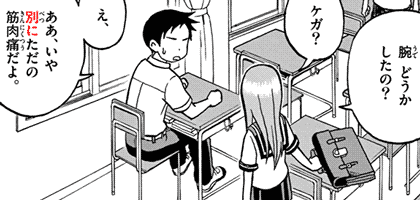
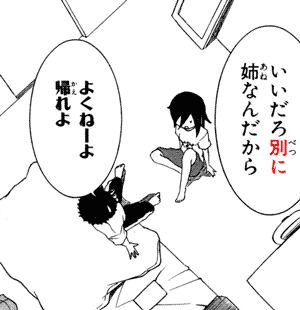
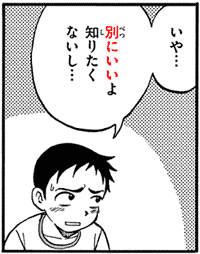
Nice blog, very helpful
ReplyDeleteExceedingly thorough! For Betsuniii, I wonder if adding (imaginary) punctuation marks would help, in other words thinking of it as either one or two (conjoined by a semi-colon) sentences: "either way; that's fine." vs "the other way is fine." Still impossible to tell without context/facial cues/mind-reading powers, but that's sort of the Japanese language for you (or so it seems to me so far).
ReplyDeleteTHANKS ALOT! i loovee this kind of post, it makes me understand a lot more phrases japanese use (also, betsuni sounds kinda cool aswell). とくに、ぜんぜんアリガトウゴザイました!
ReplyDelete